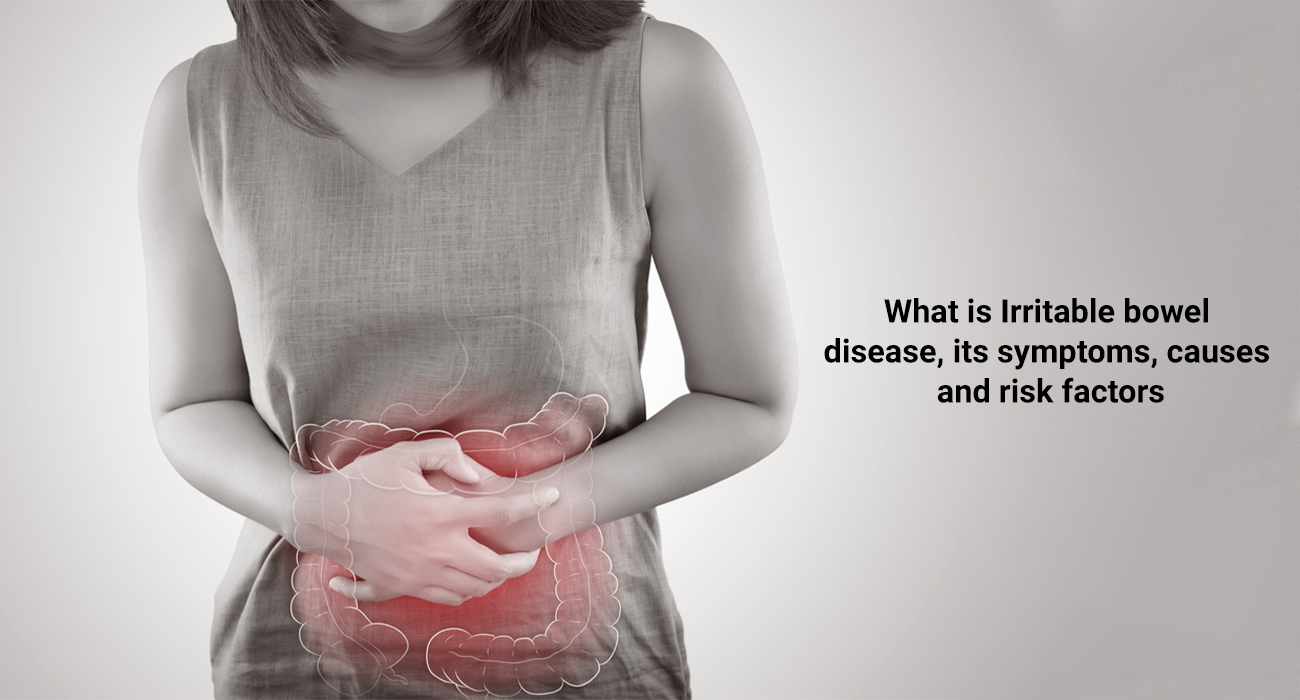What is Irritable Bowel disease, its symptoms, causes and risk factors
01/21/2023
Irritable Bowel Syndrome is basically a very common gastric disorder that affects the intestines, stomach and the gastrointestinal tract. Generally, the symptoms of IBS are mild such as constipation, excessive gas, diarrhea, abdominal pain etc and in some cases only one experiences severe symptoms. Generally, all the symptoms can be managed with the help of lifestyle, a well balanced diet, and mild exercise. Also, people who suffer from IBS do not have any risk of digestive damage or colon cancer.
Symptoms:
IBS shows a group of symptoms that usually affect the digestive system of an individual. Generally, the symptoms can vary from person to person depending upon the severity of their condition.
Some of the common symptoms of IBS may include:
- Excessive gas
- Abdominal pain
- Change in bowel movement
- Abdominal cramps
- Bloating
- Change in appearance
- Sudden weight loss
- Rectal bleeding
- Sudden weight loss
- Iron deficiency
- Excruciating stomach ache
- Vomining
- Nausea
- Indigestion
- Fatigue
- Weakness
- Mucus in feces
- Diarrhea
- Constipation
- Sleep disturbances
- Chronic pelvic pain
Causes:
Though the exact cause of IBS is not known by researchers but there can be numerous combination of factors that can lead to IBS such as
Brain gut dysfunction can be one of the probable reasons behind IBS as in this, there is a miscommunication between the nerves the cut and the brain.
Visceral hypersensitivity can be another reason behind IBS as it causes super sensitivity of the GI nerves.
Dysmotility in the digestive system causes excessive contraction of gastrointestinal muscles that causes difficulty in food movement through the GI tract.
The abnormal muscle contraction of the GI tract usually causes several problems. Excessive strong contraction can cause excessive gas bloating, diarrhea. Slower muscle contraction can slow the food movement and lead to dry, constipated and painful stools.
Risk factors:
There are a variety of conditions that make a person more vulnerable to digestive disorders such as IBS. Women are more vulnerable to having IBS as compared to men. Also, younger adults to adults if age 40 years are at a greater risk of having this condition. Other risks factor for IBS may include:
- Family history of digestive disorder and IBS
- Intolerance towards food
- Emotional stress
- Anxiety
- Headache
- Depression
- Lack of physical activity
- Severe infection (digestive tract)
- Sexual or physical abuse
Also there certain things that triggers the IBS sometimes such as spicy food, medications, stress and unhealthy eating habits etc
Diagnosis:
In order to diagnose IBS the best hospital in Jaipur, firstly asks for the various symptoms the patient is experiencing. The doctor may also ask for the patient's medical history and if there is any prior family history of gastric diseases or disorders. As per today, there is no specific laboratory test or imaging test to diagnose IBS but experienced gastrologists from the best Gastroenterology hospital in Jaipur are able distinguishes the symptoms of IBS with other symptoms.
Also the doctor may ask for a stool sample to examine the kind of infection, blood test to check if there is any sign of anemia or to rule out celiac disease and perform a Colonoscopy. By going for a colonoscopy the doctor can rule out if the person is suffering from colitis, inflammatory bowel disease or colon cancer.
Treatment:
Generally, the best Gastroenterologist in Jaipur recommends lifestyle changes and home remedies initially. The doctor also recommends regular physical exercise, avoiding caffeinated drinks and avoiding alcohol. Further, it is recommended that one must not have spicy and fried food as it can trigger the IBS symptoms. One should eat smaller meals for better digestion. Stress also induces symptoms of IBS therefore one should not take stress. Having probiotic drinks is also helpful as it contains good bacteria and helps with few symptoms of IBS such as bloating constipation and relieving gas.

